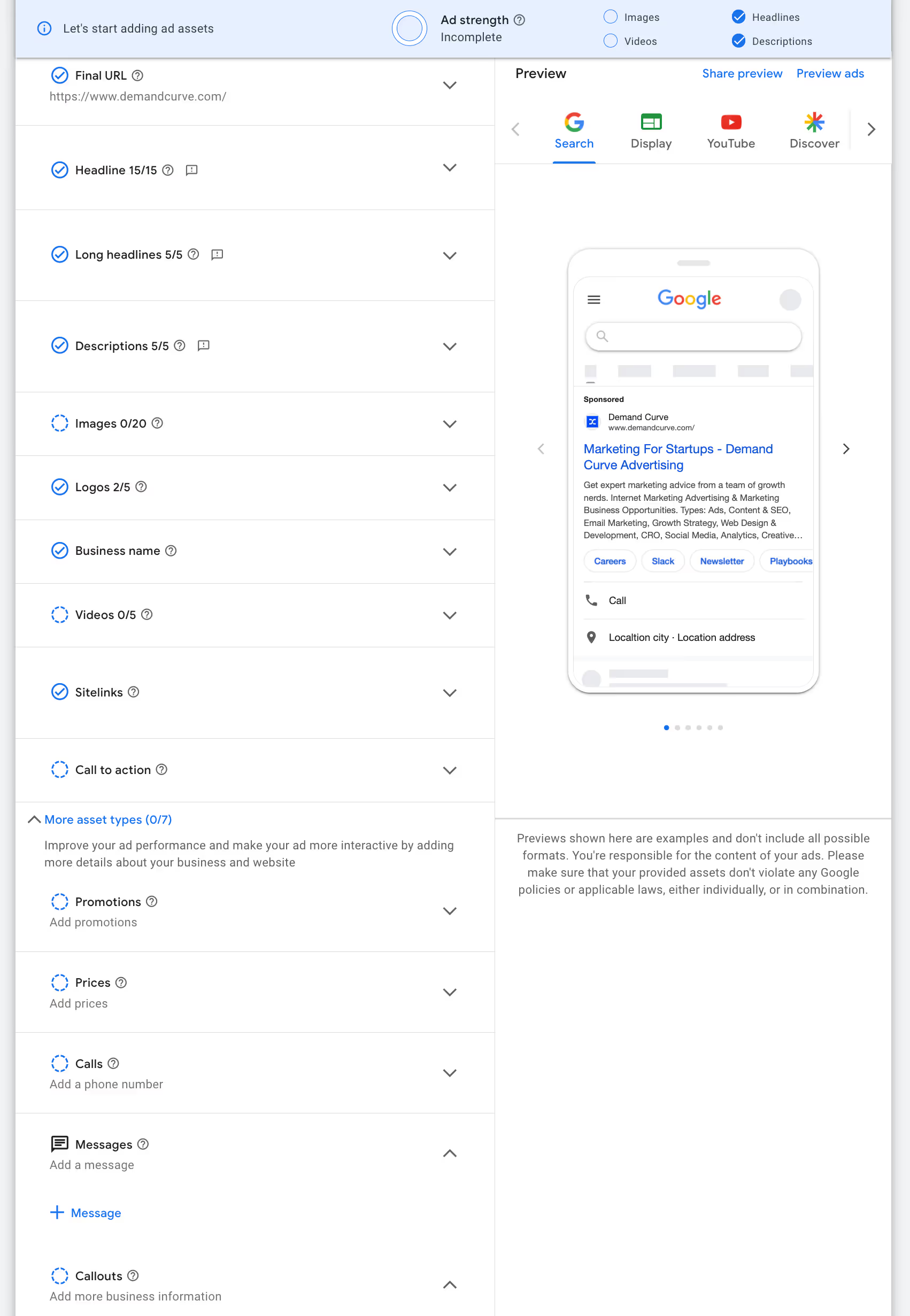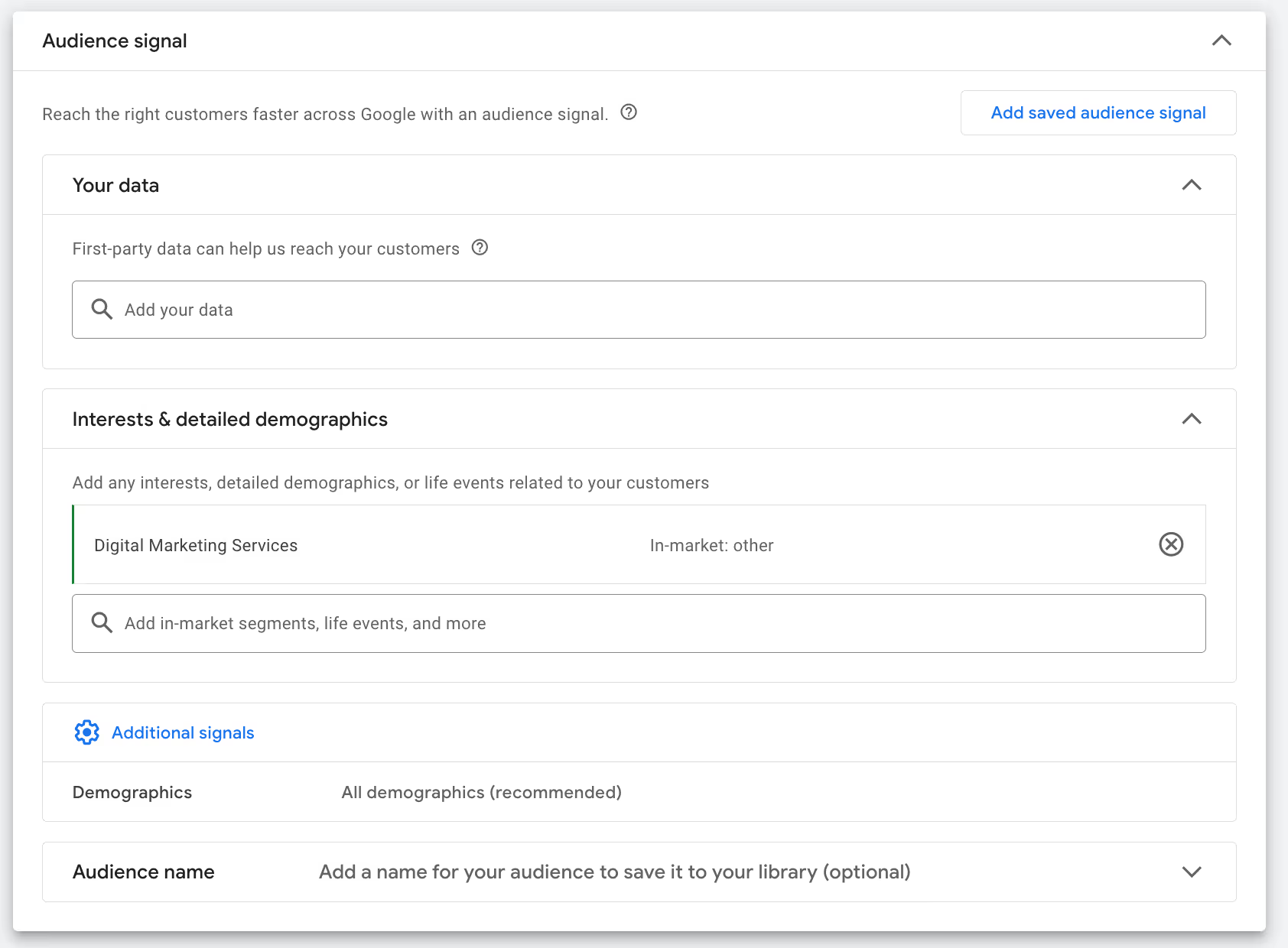
Conversation

🥳 Feedback Received!
Thanks for taking a moment to share your thoughts — it genuinely helps us make each chapter sharper.
What happens next:
- Your feedback goes straight to our product team.
- We’ll use it to refine lessons, clarify examples, and make the program even more useful.
Appreciate you helping make this program better for everyone.
Ready for your next challenge? 👇
Performance Max Account Structure
Performance Max (PMax) integrates Search, Display, YouTube, Gmail, and Discover ads into a single, automated campaign, leveraging Google’s machine learning to optimize for your goals (e.g., conversions, brand awareness).
In this lesson we'll dive into how PMax is structured, the assets you feed into it, and your targeting options available.
Spoiler: There isn't a ton you can configure—and that's a good thing. Google's algorithm knows best, so the goal of PMax is to feed it assets and data and let Google do its thing.
What you feed into PMax
PMax uses responsive, dynamic ad formats across channels, requiring minimal setup while maximizing performance.
Your job is to feed it a mix of text, images, and video. Then Google’s machine learning tests thousands of combinations to deliver the best results.
Campaign options
Like other campaign types, with PMax you configure these main things at the campaign level:
- Budget
- Location
- Languages
- Ad schedule
- Bid type
This is effectively the same as Search Ads so we won't cover them in detail.
Asset groups, not ad groups or ads
PMax doesn't have ad groups or ads. Instead, you create Assets Groups which are a combination of:
- Assets (text, image, video, ad assets)
- Products (if an ecomm company)
- Targeting
- Search themes
- Audience signal
Assets
Here's a list of all the assets you feed into PMax (the more the better):

Products
If you are an ecomm company with products, you can leverage Shopping Ads directly within Performance Max.
Note, we also have a Shopping Ads module as we often recommend starting with a dedicated Shopping campaign and only expanding into Performance Max as you scale the account.
To do this, you need a Google Merchant Center account populated with your products and connected to Google Ads. Performance Max will then use them at its discretion to drive conversions.
See instructions in Project: Google Merchant Center.
Targeting
PMax uses what it calls "signals."
These aren't explicit targeting options but instead signals you want to give Google to give it a general idea of the type of people you're looking for.
These break down into two types:
- Search themes: Think of them like Keywords
- Audience signals: Think of these as Audiences.
Search themes
You can list upwards of 25 search themes (a.k.a. keywords):

This is pretty simple and I would come up with at least 10-15 targeted and related keywords much like you would for ad groups in Search Ads.
Audience signals
This is much like the Audience targeting covered in Search where you either use your own data or you use Google's built in audience types and demographics:

That's about it
So at the campaign level you can set your budget, location, and language targeting, and then you create some assets groups that target specific keyword and/or audience grouping.
In the next lesson, we'll walk you through creating and launching your first PMax campaign!


